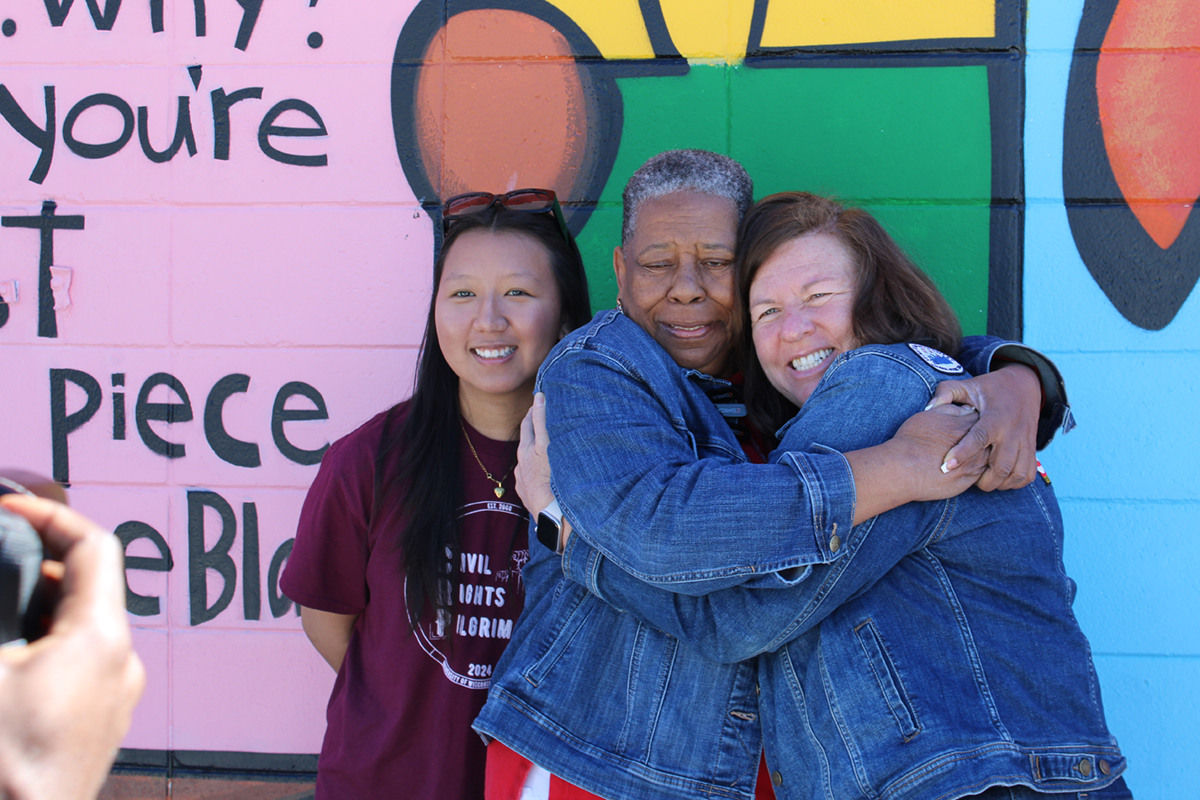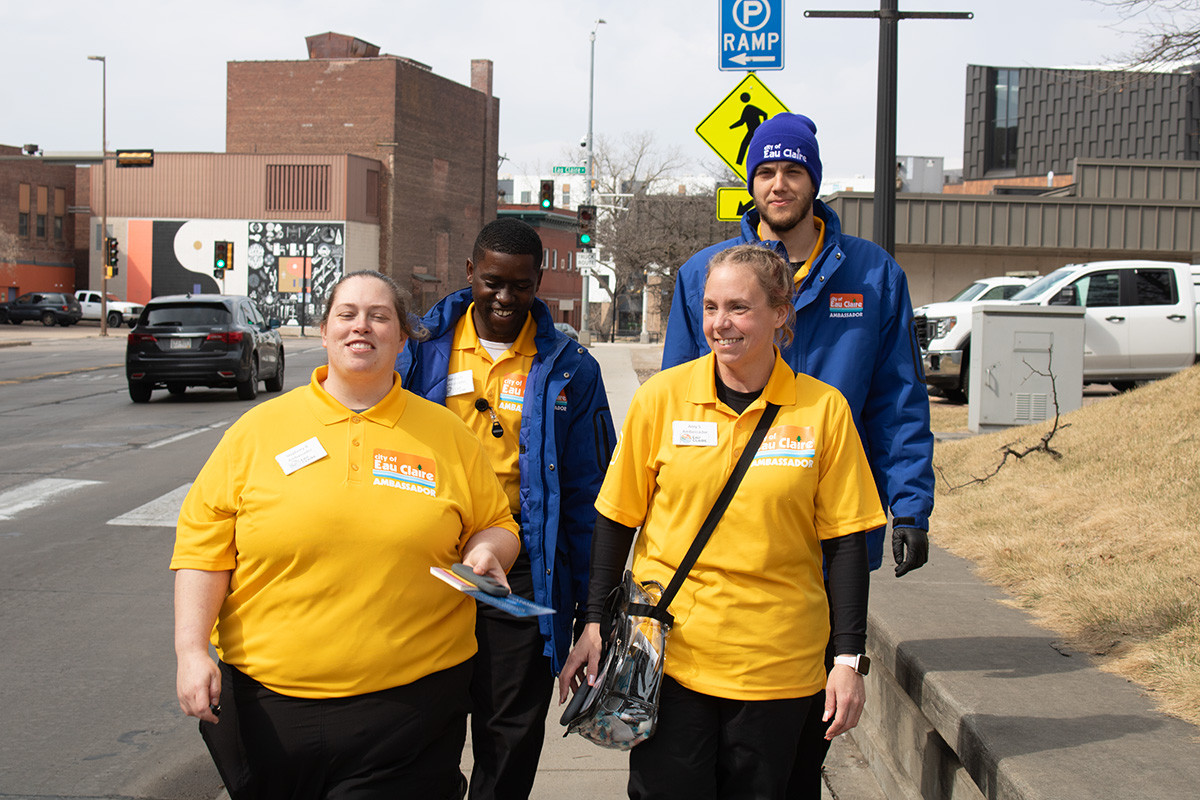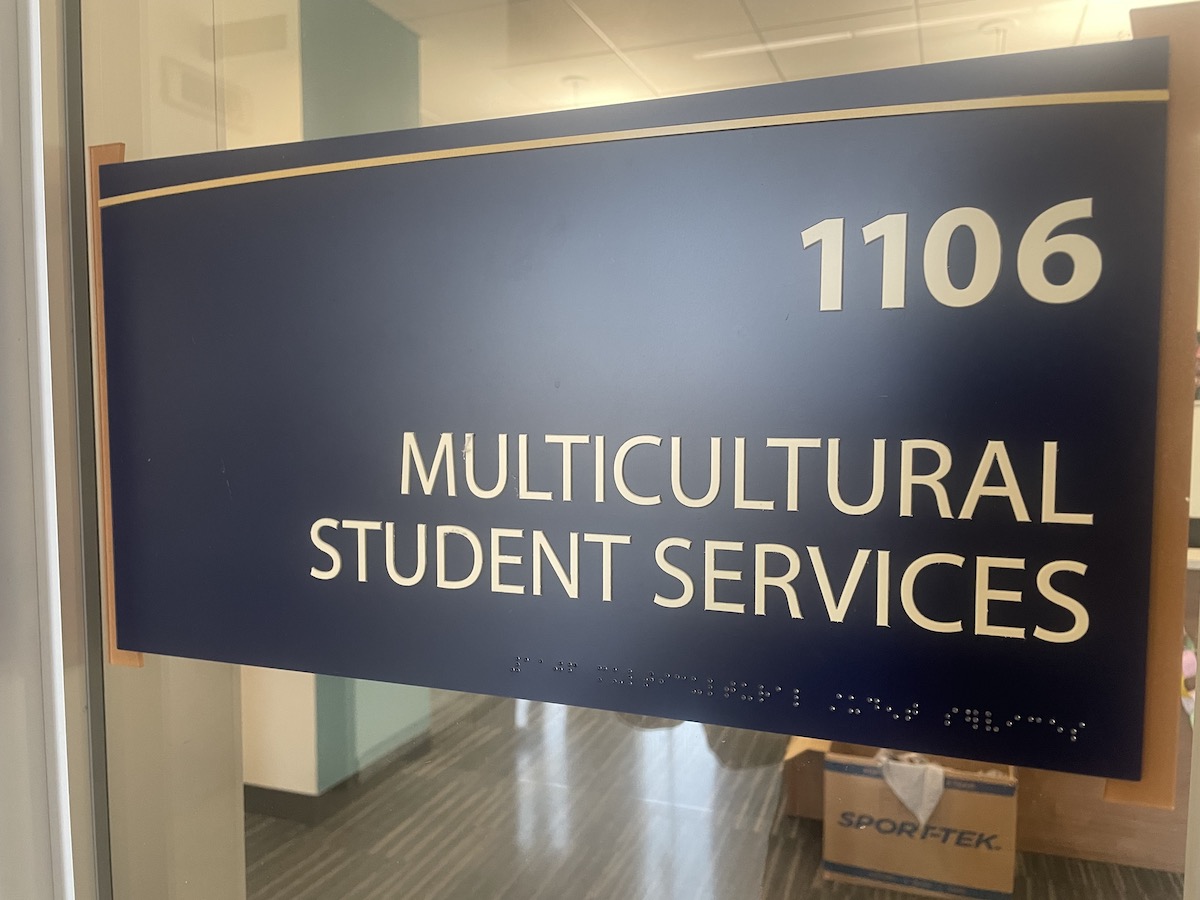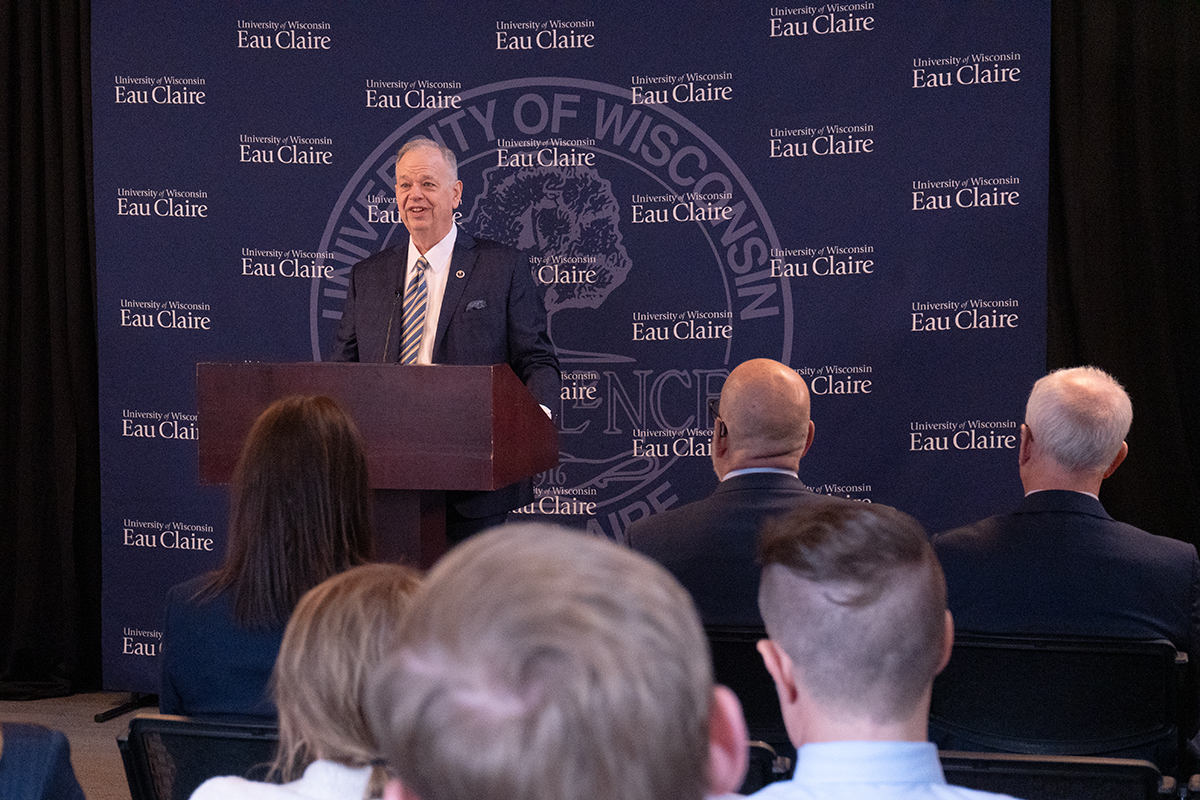When Jodi Thesing-Ritter was younger, she never saw herself working in higher education, but she knew she wanted to have a career where she could help people.
“I went to college intending to become a doctor and really wanted to help people,” Thesing-Ritter said. “And as someone who grew up in poverty, that sort of idea of helping people, you have a couple of images of who does helping people.”
So Thesing-Ritter pursued a degree in biology and chemistry from St. Mary’s University in San Antonio, Texas with the dream of becoming a medical doctor, but after working in the St. Mary’s Dean of Students Office and as a resident assistant, she said she fell in love with college student affairs.
That love for working with college students followed Thesing-Ritter through a student personnel administration master program at the Teachers College of Columbia University and an education specialist degree program at UW-Stout.
Thesing-Ritter has served in several positions at UW-Eau Claire and is now the director of the Center for EDI Training, Development & Education and she teaches courses for the University Honors Program and the race, ethnicity, gender and sexuality (REGS) department.
Within the UW-Eau Claire campus community, she is best known for her work with students to create the Civil Rights Pilgrimage, a domestic immersion program beginning in 2008 that allows students to “travel the path of the civil rights movement and walk through these pivotal places and stories in our history,” according to the program website.
As of April 2024, there have been 29 trips and almost 3,000 participants, and Thesing-Ritter has attended 28 of the total trips.
“It wasn’t until I went on the Civil Rights Pilgrimage the very first time that I recognized that there’s so much more to know and that everyone needs to be engaged in a lot of unlearning and more intentional learning so that we could as a collective do better,” Thesing-Ritter said. “I am deeply grateful that the students had this idea because it really changed who I am as a person.”
Thesing-Ritter said the pilgrimage first started when four resident assistants and former Putnam Hall Director January Boten came to her in 2008 with the idea when she was working as the associate dean of students.
“They [the resident assistants] came to ask me if I’d help them with this project — I loved the idea — and we were able to work on it together,” Thesing-Ritter said. “So I helped to found it but I don’t want to take credit for the idea. It was a student idea, which I love about it.”
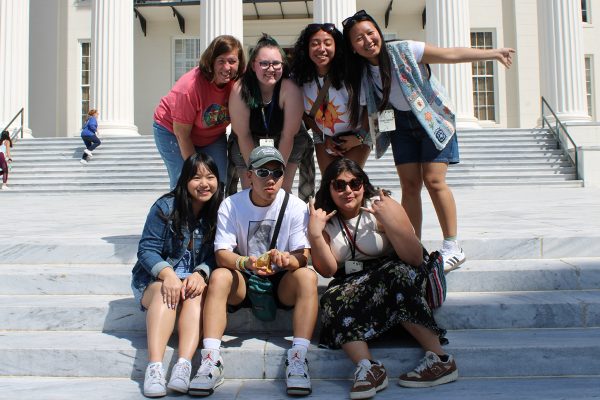
Because a group of student coordinators leads the pilgrimage, Thesing-Ritter said each trip is different. Student coordinators choose the locations they will visit and which speakers they will hear from based on the desired learning outcomes of that trip.
The most recent pilgrimage — which took place March 15-24 during UW-Eau Claire spring break — was coordinated by students Joseph Her, Ivy Jones, Dani Thompson, Emma Velazquez, Natylee Winter and Chhime Yangdron under the advice of Thesing-Ritter.
Velazquez, a third-year social work student, planned the Memphis and Nashville, Tennessee parts of the trip. She loves going on the pilgrimage because it allows her to learn from and build relationships with civil rights leaders like Joanne Bland, who was the youngest person to be arrested during the Civil Rights Movement.
In Selma, Alabama, trip participants visited the Foot Soldiers Park, an education center and museum founded in 2021 by Bland to “preserve the history and lessons of the Civil Rights Movement, transform the city of Selma and become a driving force in the present day fight against voter suppression.”
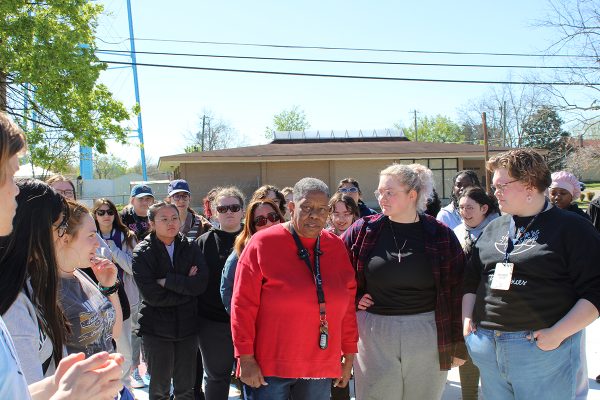
Part of the pilgrimage’s intention is to put the Civil Rights Movement into perspective for students today, which means weaving together activists from the 1960s with activists like Callie Greer, who advocates for healthcare and gun reforms after the deaths of her daughter and son.
“She [Greer] really inspires me because her story I can really connect with,” Velazquez said. “Just the loss that she’s experienced and the ability to forgive that she has really speaks to me. I like to take what I learn and hear from her and try and apply it to my own life and carry myself as great as she does.”
“They [the spring 2024 coordinators] also wanted to make sure that all of the experiences that we had on the trip really had critical connections to issues facing us today and how we could use what we learned from history makers to make change today,” Thesing-Ritter said.
Making these connections between history and current events is important for students, Thesing-Ritter said, especially now. The future of equity, diversity and inclusion (EDI) programming is uncertain at UW-Eau Claire and other UW System campuses after the Board of Regents approved a deal with Assembly Speaker Robin Vos, R-Burlington.
In exchange for releasing pay raises for UW System employees, the deal includes realigning a third of EDI positions, changes to EDI programming at the system level and on individual campuses and a hiring freeze through December 2026.
Wisconsin is not the only state cutting funding for university EDI programs. Universities across the country are seeing cuts to EDI programs, and often anti-EDI legislation comes from concerns by conservatives that these programs are “indoctrinating” students.
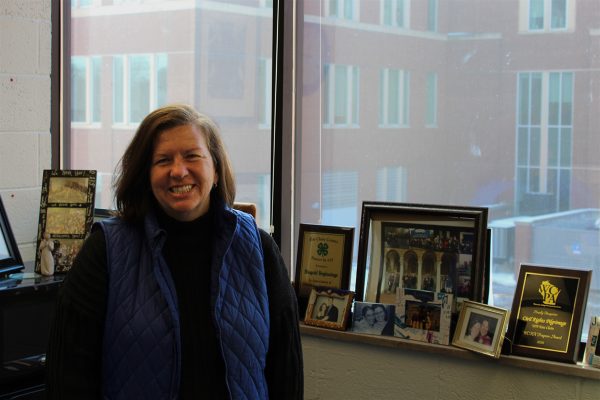
About these attacks on EDI in higher education, Thesing-Ritter said we are in a period of backlash and quoted Reverend Martin Luther King, Jr.
“This is what has happened throughout history, people in positions of power are perceived that their power is going to be taken away by creating inclusive and equitable spaces, and there’s backlash associated with it,” Thesing-Ritter said. “Dr. King said ‘the arch of justice is long,’ and that is in fact true and we’re just in a period of backlash.”
But Thesing-Ritter is not discouraged by the deal struck by Vos and the Board of Regents, rather she sees this as a motivator for the UW System campus communities.
“Knowing what I know from our change-makers — the makers that we look to learn from on the trip — we have to be vigilant, we have to work harder than ever to make sure that their hard work is not undone,” Thesing-Ritter said. “So while it’s angering and really frustrating, it’s also super motivating. We got to keep working harder and seek motivation from the change-makers who came before me because the work has to be done and in the end, justice will prevail.”
But in terms of the Civil Rights Pilgrimage, she is concerned about the future of the program after she retires at the end of the 2024-25 academic year. Thesing-Ritter said she hopes UW-Eau Claire values the domestic immersion trip to make sure that it continues beyond her guidance.
“One of my biggest hopes is that because the trip has made such a lasting impression on me and really transformed the way I see myself and the world, I want it to last for other people to have that experience,” Thesing-Ritter said. “I really do hope that the foundation that we built can last.”
Kasper can be reached at kasperml9306@uwec.edu.
Correction: A previous version of the story said Jodi Thesing-Ritter was the Putnam Hall director instead of the associate dean of students in 2008.


